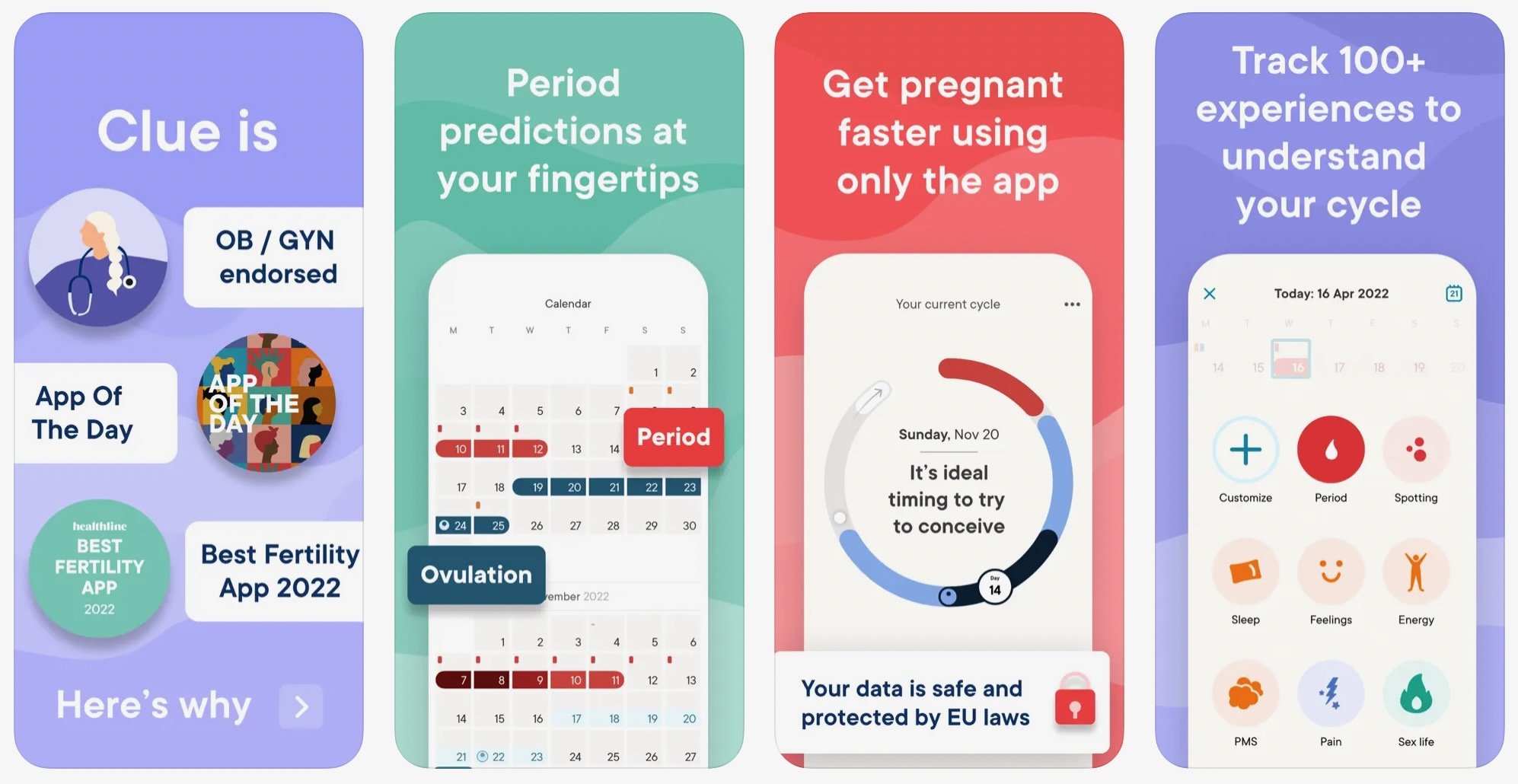The pain of maturation and profitability has hit another startup. Yesterday Clue, the creator of a period and fertility tracking app, announced a reduction in staffing.
A press statement by co-CEOs Carrie Walter and Audrey Tsang shared with me reveals:
Clue has been a pioneer in femtech since our founding a decade ago. Today, Clue is one of the world's leading tracking apps. The app is used monthly by 11 million users, but has been downloaded over 100 million times by women and people with cycles in 190 countries to take charge of their health. We are again leading the category by committing to medical-grade quality, at scale.
Like many companies, we hired ahead of revenue, which is not sustainable in the current environment. We have therefore made the difficult decision to reduce the team by around one quarter (31 people), effective January 18. We will sorely miss the Cluebies who are leaving us and thank them for their hard work and incredible dedication to Clue's mission.
This is the hardest decision we have made as a leadership team, but know that it is the right one for the company's future. We have sharpened our focus on core value drivers in the business to accelerate growth and we're confident in the journey ahead.
Investors want their profits
The company was founded in 2012 by Danish entrepreneur Ida Tin who is responsible for coining the term "femtech". Clue has raised $47.8M in funding over nine rounds, and it looks like investors want their revenue.
A now-former employee told me that the cut was at the direction of investors.
Among the staff reduction, the company's Chief Medical Officer, Lynae Brayboy, MD, and general counsel were let go.
A gamechanger for women's reproductive health

Since its founding, Clue's period and cycle tracking app has been downloaded by 10 million users and is available on iOS, Android, and Apple Watch.
The app calculates and predicts users' periods and PMS based on users' data and calculates fertility windows based on global averages, which can be made more accurate by users entering ovulation test data.
But the app has also raised concerns about data sharing, privacy and security.
The challenge of securing reproductive health data in the post-Roe v Wade era
Last year the Mozilla Foundation included the app in its annual *Privacy Not Included buyer's guide, which helps consumers shop for trustworthy connected products (and journalists incorporate product privacy into their work).
In the United States, privacy advocates are raising concerns about period trackers, which can indicate that someone became and then no longer was pregnant. This could be a precursor for criminal investigation. Clue told the Foundation that its data is unlikely to be the subject of inquiry but that "the risk of such disclosure, however, cannot be eliminated."
The Clue app collects data such as user weight, body temperature, period length, sexual activity, birth control methods, cravings, mood, energy levels, and more.
The Foundation raised concerns that the company shares some of this data with third parties for advertising, marketing, and research purposes – unless you opt out. However, Clue asserts that it does not share its users’ health data with advertisers and has a strong stance on privacy.
The Mozilla Foundation asserts that while the user data is only shared with "carefully vetted researchers" and de-identified, it has been found to be pretty easy to re-identify such data, especially if location data is included.
Then there's the problem of data brokerage.
Data on which apps someone has downloaded on their phone is routinely obtained by data brokers through spyware.
In May 2022 Motherboard reported they were able to purchase data from the data broker, Narrative, that could potentially identify users of the Clue app, with the broker identifying devices that have the app installed.
However, according to Clue, the data that VICE obtained consisted of Android AdIDs – so all it could have potentially shown was simply whether someone had Clue on their phone, not how they use Clue or what they tracked in Clue. "The tracked data within Clue is protected. If someone has an Android phone, they should be particularly careful that they don’t download untrustworthy apps (we have included some tips here)."
Clue's biggest clinker is security. The Mozilla Foundation could log into the app with the very weak password of "1". In response, the company committed to upgrading its password requirement –– pretty shocking stuff for a multi-million dollar company. This has since been rectified by the company.
What now for new product offerings?
The company relaunched the Clue app in late November to include 40+ new evidence-based tracking options in categories like "pain" or "sex life", improved usability, and availability in an additional three languages.
The FDA-approved Clue Birth Control is already delayed past its intended 2022 launch.
But, well, how does Clue make any money?
Clue Plus - the company's premium subscription model has been available since July 2018. Offered at only €1 (or the local currency equivalent) per month, the company "aims to make Clue accessible to as many people as possible around the world" It offers enhanced analysis and personalised predictions for cycle-related symptoms with Forecast as well as access to additional modes like Clue Conceive, and Clue Pregnancy.
The challenge is around subscription revenue. A representative from the company told me,
"11 million people in over 190 countries rely on Clue every month to better get to know their bodies. Our users would not be able to do that if we weren’t focused on building a sustainable business, and to do that we of course need to increase subscriptions. It’s also important to remember that paid subscriptions are our only revenue stream because we are committed to never selling our community’s data."
Lead image via Clue. Photo:Uncredited.



Would you like to write the first comment?
Login to post comments